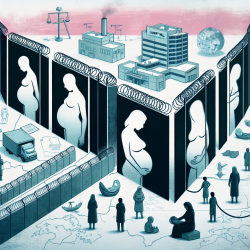The recent study titled "Too precarious to walk: an integrated 'three delays' framework for modeling barriers to maternal health care and birth registration among stateless persons and irregular migrants in Malaysia" sheds light on the critical challenges faced by vulnerable populations in accessing essential services. This research extends Thaddeus and Maine’s (1994) “three delays” framework to model interrelated barriers affecting maternal health care and birth registration among stateless persons and irregular migrants in Malaysia.
The Three Delays Framework
The original “three delays” framework was designed to theorize factors influencing maternal mortality outcomes following obstetric complications. It identifies three phases of delay:
- Phase I: Deciding to seek care.
- Phase II: Identifying and reaching healthcare facilities.
- Phase III: Receiving adequate treatment at the facility.
This study adapts the framework to explore barriers not only in maternal healthcare but also in birth registration, highlighting how exclusion from one system increases the risk of exclusion from the other.
Key Findings
Legalized Exclusion
The study found that exclusion from civil registration systems jeopardizes individuals' ability to secure a legal identity. Stateless persons and irregular migrants often face high costs for healthcare services due to their lack of citizenship status, leading many to opt for home births with traditional midwives instead of formal medical facilities.
Fears of Apprehension
A well-founded fear of arrest, detention, and deportation discourages many from seeking institutional contact. This fear is compounded by the presence of roadblocks and surveillance operations targeting unauthorized immigrants.
Complex Bureaucratic Pathways
The process of obtaining a birth certificate requires extensive documentation, which many families cannot provide. This creates a cycle where lack of documentation leads to further exclusion from necessary services.
Implications for Practitioners
This research highlights the need for practitioners to advocate for more inclusive policies that lower administrative barriers for legally marginalized populations. By understanding these barriers, practitioners can work towards solutions that improve access to both healthcare and civil registration systems.
Encouraging Further Research
The integrated three delays model offers a valuable framework for examining similar issues in other contexts. Researchers are encouraged to adapt this model to explore barriers faced by other vulnerable populations worldwide.










